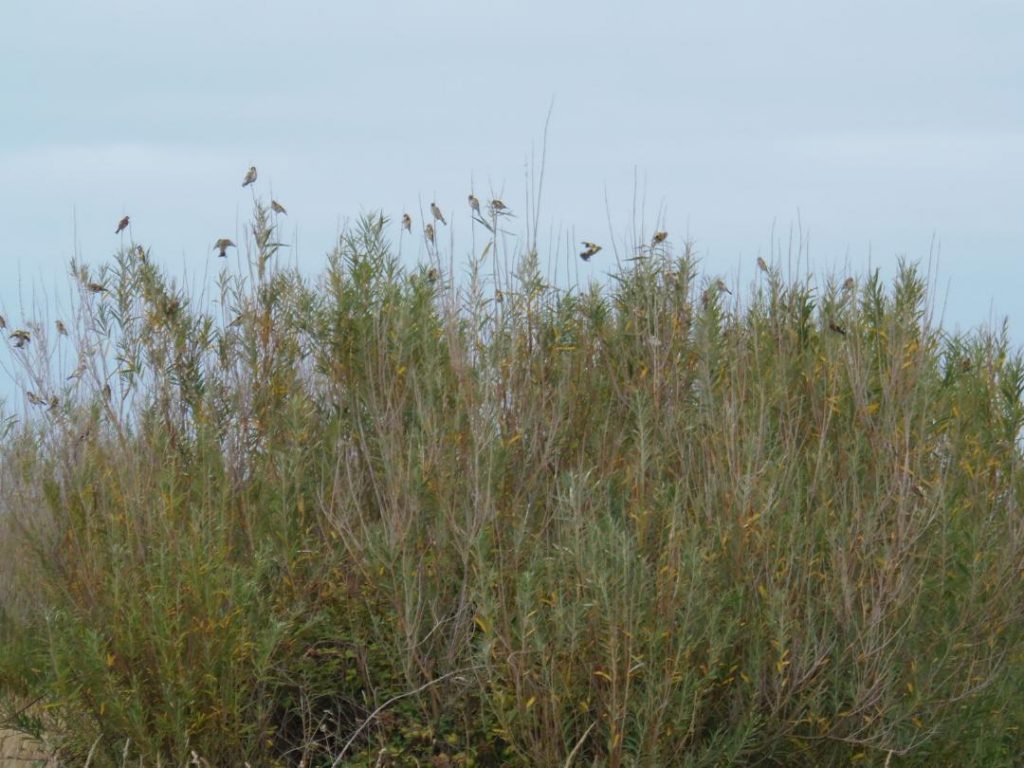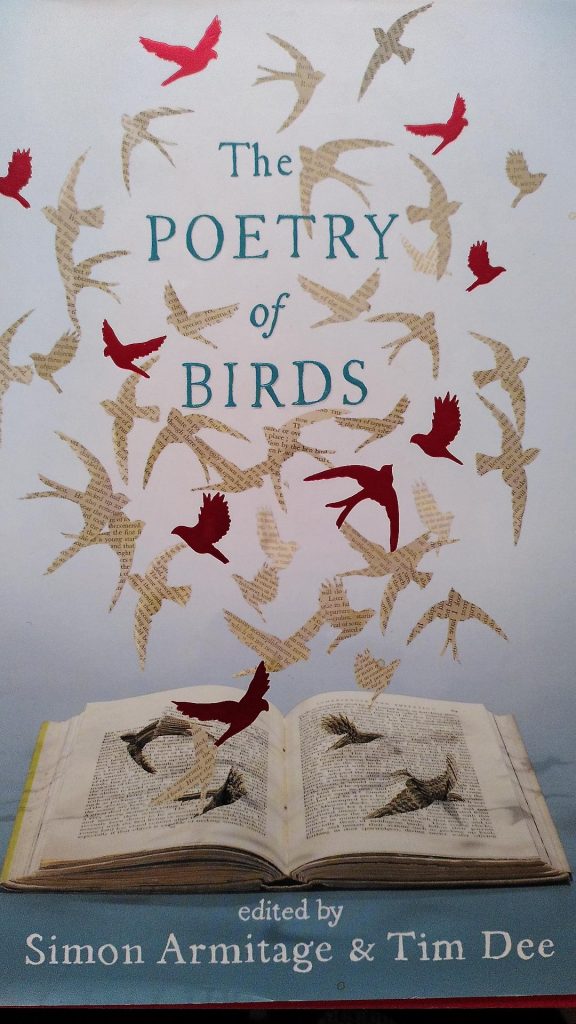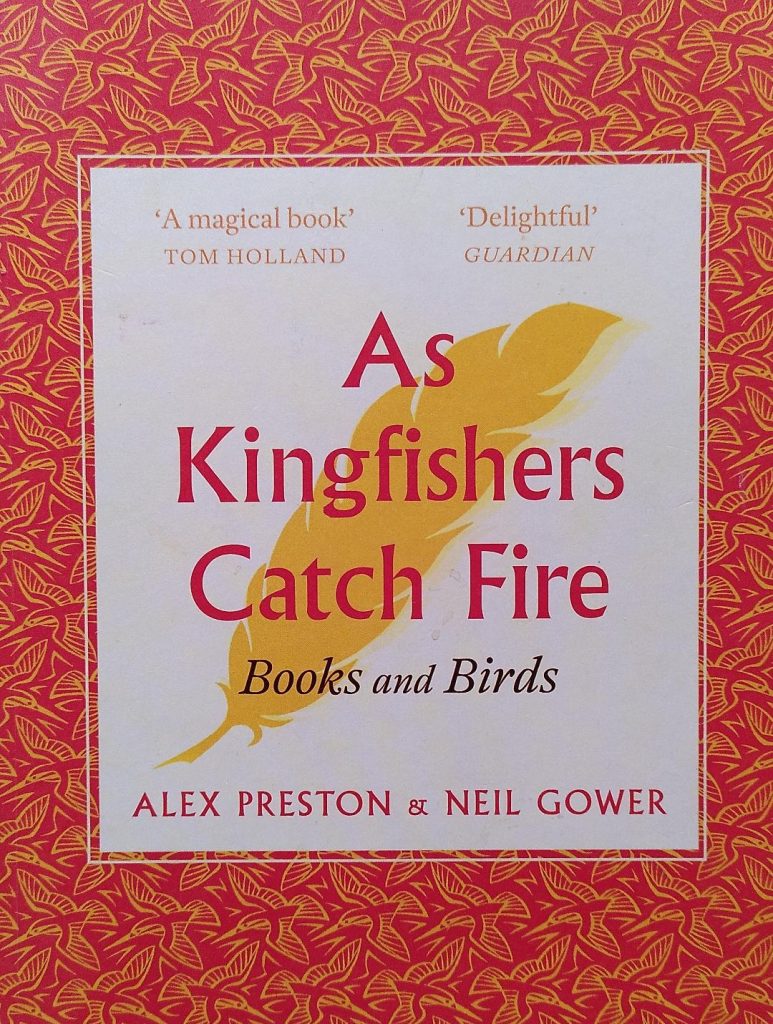
A group of goldfinches is called a ‘charm’. This term comes from the Old English word ‘c’irm’ and refers to their sweet, twittering song but it is a magical site to see flocks of them descending on the thistle heads along Cowbar Lane bund in late summer and early autumn. They can form ‘charms’ of up to 100 birds to search for food. It is good to know that there is so much for them to eat on the wild Cowbar grassland.
We regularly see 30 or more, at first easily camouflaged in the dried grasses and thistles but then taking off together for the next patch of seeds. They especially enjoy seeds from dandelions, ragwort and teasels. The Yorkshire Coast Nature group observed a near doubling of goldfinch nests between 2020 and 2021. They like to nest in thick cover and build their nests with moss and lichen, often held together with spider silk.
We see them all year on Cowbar, but some UK goldfinches will take off for France and Spain for the winter. You can read more about goldfinches on our website here.

This collection of poetry about birds, edited by a poet and a bird-watcher, contains a wide range of writing from past and present writers, but only one short poem on a goldfinch, by Thomas Hardy.
‘ The Poetry of Birds’ edited by Simon Armitage and Tim Dee.
Penguin / Viking ISBN: 978-0-670-91641-2
‘As Kingfishers Catch Fire’ takes its title from a poem by Gerard Manley Hopkins. It celebrates both prose and poetry writing about 21 different birds, many of which are familiar to us on Cowbar. It is beautifully illustrated and has a full chapter on the goldfinch. You can find out more about the book on our website here.

Strangely, neither of these books include Mary Oliver’s powerful poem about goldfinches which captures their joy, energy and brightness so precisely, as well as reminding us that we share the land with them.
GOLDFINCHES by Mary Oliver
In the fields
we let them have —
in the fields
we don’t want yet —
where thistles rise
out of the marshlands of spring, and spring open —
each bud
a settlement of riches —
a coin of reddish fire —
the finches
wait for midsummer,
for the long days,
for the brass heat,
for the seeds to begin to form in the hardening thistles,
dazzling as the teeth of mice,
but black,
filling the face of every flower.
Then they drop from the sky.
A buttery gold,
they swing on the thistles, they gather
the silvery down, they carry it
in their finchy beaks
to the edges of the fields,
to the trees,
as though their minds were on fire
with the flower of one perfect idea —
and there they build their nests
and lay their pale- blue eggs,
every year,
and every year
the hatchlings wake in the swaying branches,
in the silver baskets,
and love the world.
Is it necessary to say any more?
Have you heard them singing in the wind, above the final fields?
Have you ever been so happy in your life?